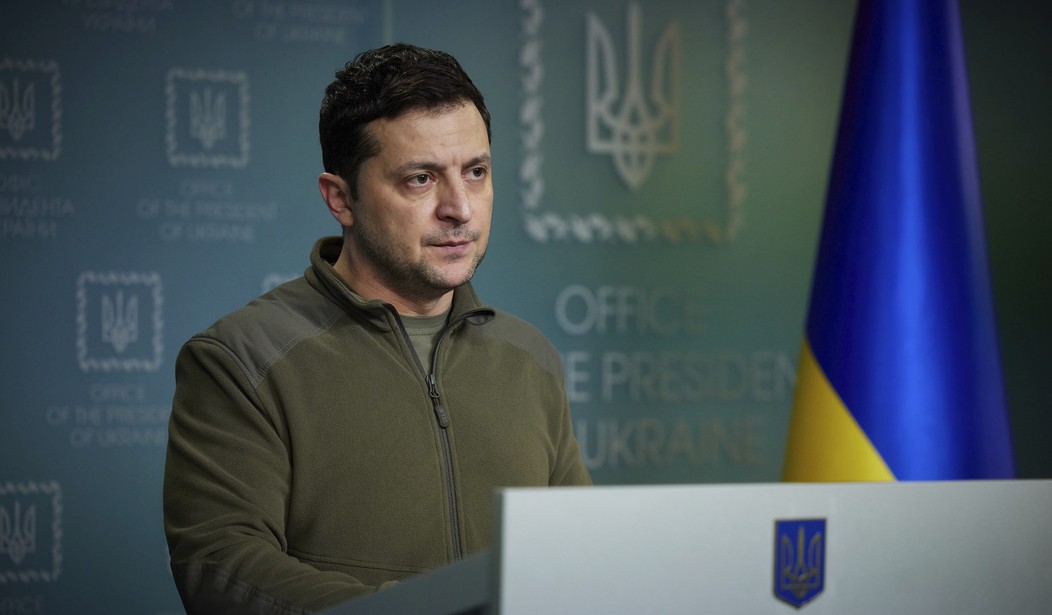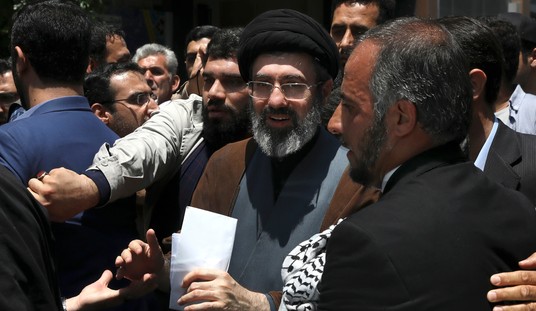You’ll recall that Russia has four demands, although each can and will be defined broadly or narrowly depending upon how well their army is faring on the battlefield.
Putin’s four demands for a ceasefire with Ukraine:
• Ukraine to be neutral, no NATO membership
• Disarmament
• De-Nazification
• Zelensky agreeing negotiations on Donbas with PutinPer Erdogan, Putin phone call, retold by senior Turkish official Kalin to BBC
— Ragıp Soylu (@ragipsoylu) March 18, 2022
Turkish sources tell the Financial Times this morning that the two sides are inching closer on the first three, although whether Putin is sincere or just playing for time by negotiating is anyone’s guess.
Turkey, which is mediating in the talks alongside Israel, said Ukraine and Russia had made significant progress on Kyiv declaring neutrality and abandoning its drive for Nato membership, “demilitarising” Ukraine in exchange for collective security guarantees, what Russia calls “denazification”, and lifting restrictions on the use of Russian in Ukraine.
A possible agreement would require Russia to announce a ceasefire and withdraw its troops from Ukrainian territory to the positions they had been in when Russian president Vladimir Putin launched the invasion on February 24.
It is likely that a compromise would involve Kyiv making token concessions by banning certain groups or changing the names of streets named after Ukrainian partisans who fought alongside Nazi Germany against the USSR in the second world war, said two people briefed on the talks.
“Denazification” was originally code for toppling Zelensky’s government and replacing it with a Russian puppet regime. The fact that it’s apparently been watered down to renaming some streets is all you need to know about how well the war has gone for Russia so far.
The sticking point will be territory. Unless his army breaks down completely, it’s hard to imagine Putin will withdraw without a concession in the form of land. He’ll need something concrete to point to as justification for the war, and Ukraine agreeing to lift restrictions on the speaking of Russian ain’t it. Zelensky reiterated to CNN this morning that his country won’t concede any territory, however. And American hawks like Liz Cheney are adamant that Putin shouldn’t be rewarded for his aggression by getting to carve off pieces of Ukraine, especially when his army has performed so badly. As eager as everyone is to see the shooting stop, that eagerness shouldn’t justify a hasty capitulation.
Ukrainians are in no mood for one either:
An overwhelming percentage of Ukrainians believe Russia will be defeated, and do not support a ceasefire unless Russia fully retreats from Ukraine. pic.twitter.com/14V9MlHUfF
— Christo Grozev (@christogrozev) March 20, 2022
Ninety-three percent believe — or claim to believe when asked by a pollster — that they’re going to win. Are they right?
They’ve won the first phase of the campaign, the Institute for the Study of War concluded in an assessment published last night:
Ukrainian forces have defeated the initial Russian campaign of this war. That campaign aimed to conduct airborne and mechanized operations to seize Kyiv, Kharkiv, Odesa, and other major Ukrainian cities to force a change of government in Ukraine. That campaign has culminated. Russian forces continue to make limited advances in some parts of the theater but are very unlikely to be able to seize their objectives in this way. The doctrinally sound Russian response to this situation would be to end this campaign, accept a possibly lengthy operational pause, develop the plan for a new campaign, build up resources for that new campaign, and launch it when the resources and other conditions are ready. The Russian military has not yet adopted this approach. It is instead continuing to feed small collections of reinforcements into an ongoing effort to keep the current campaign alive. We assess that that effort will fail.
Russian forces have finally entered Mariupol in southeast Ukraine after weeks of laying siege to it but the ISW projects that taking the city won’t do much at this point to strengthen Russia’s ability to advance elsewhere. “The block-by-block fighting in Mariupol itself is costing the Russian military time, initiative, and combat power,” they write. “If and when Mariupol ultimately falls the Russian forces now besieging it may not be strong enough to change the course of the campaign dramatically by attacking to the west.”
With Russia’s advance stalled and the Ukrainians focused on defending major cities, the conflict appears headed for stalemate. How long that stalemate lasts depends on whether Russia can keep its forces supplied until the bombing and starvation wear down Ukrainian morale. “Just that they’re talking about resupply and re-sourcing tells you they are beginning to get concerned about longevity here,” said one top Pentagon official to WaPo of Russia’s request for help from China and Syria. On that note, read Trent Telenko’s thread about the logistical trouble Putin’s army is having keeping its supply trucks in working order. A stark prediction:
Between the end of April and Mid-May 2022, the Ukrainian Army will be able to counter-attack EVERYWHERE.
Because there will be NOWHERE more than 20 miles/30 km inside Ukraine where Russian troops won't be out of food and low on ammunition.
17/End
— Trent Telenko (@TrentTelenko) March 20, 2022
There’s been heavy attrition in manpower too, of course. Reports are circulating of Belarusian hospitals filling up with wounded Russian soldiers. U.S. officials estimate that 75 percent of Russia’s combat-ready force is deployed in Ukraine; if the estimates of 25-30,000 casualties so far are accurate, it means around a third of their main combat troops are out of action after less than a month of war.
What breaks first, the Russian war machine or the Ukrainian people’s will to resist? Putin is pursuing a strategy of maximum terror to wear them down:
Ukrainian MP @InnaSovsun tells T&G that Mariupol residents being forcibly relocated to live in Russia are also being ordered to sign paperwork to agree to work without pay. "They are being turned into slave labour".@TimesRadio
— Tom Newton Dunn (@tnewtondunn) March 20, 2022
He may begin terrorizing western officials too:
⚡️Russia claims Ukraine plans to attack Western diplomats in Lviv.
Russia’s Defense Ministry spokesman Igor Konashenkov accused Ukrainian fighters from the Azov battalion of preparing to attack the U.S. and other Western diplomats in Lviv and putting the blame on Russia.
— The Kyiv Independent (@KyivIndependent) March 19, 2022
The greater the risk of the conflict escalating into a regional war, the more pressure the U.S. and EU will put on Zelensky to come to terms with Putin before it does.
Here he is today on CNN insisting that negotiations must proceed because the alternative is World War III. That’s exactly the logic that’ll be used by his own allies to try to get him to accept a bad deal.
"I am ready for negotiations with him. I was ready over the last two years and I think that without negotiations we cannot end this war" Ukrainian President Zelensky tells @fareedzakaria negotiating with Russian President Putin is worth the effort to end the fighting. pic.twitter.com/VdLKveKMoE
— CNN (@CNN) March 20, 2022








Join the conversation as a VIP Member